| dc.contributor.author | Landgraf, Carolin | |
| dc.date.accessioned | 2021-09-24T09:25:58Z | |
| dc.date.available | 2021-09-24T09:25:58Z | |
| dc.date.issued | 2021 | |
| dc.identifier.uri | https://doi.org/10.17875/gup2021-1612 | |
| dc.format.extent | 254 | |
| dc.format.medium | Print | |
| dc.language.iso | eng | |
| dc.relation.ispartofseries | Göttinger Reihe zur Ethnologie - Göttingen Series in Social and Cultural Anthropology | |
| dc.rights.uri | http://creativecommons.org/licenses/by-sa/4.0/deed.de | |
| dc.subject.ddc | 300 | |
| dc.subject.other | OAPEN | |
| dc.title | Aspiring to the Good Life in Seoul | |
| dc.title.alternative | Ethics and Economics in the Narratives of Young South Koreans | |
| dc.type | monograph | |
| dc.price.print | 31,00 | |
| dc.identifier.urn | urn:nbn:de:gbv:7-isbn-978-3-86395-506-9-2 | |
| dc.description.print | Softcover, 17x24 | |
| dc.subject.division | peerReviewed | |
| dc.relation.isbn-13 | 978-3-86395-506-9 | |
| dc.identifier.articlenumber | 8102157 | |
| dc.identifier.intern | isbn-978-3-86395-506-9 | |
| dc.bibliographicCitation.volume | 021 | |
| dc.type.subtype | thesis | |
| dc.subject.bisac | SOC002010 | |
| dc.subject.vlb | 750 | |
| dc.subject.bic | J | |
| dc.description.abstracteng | This dissertation explores the values and practices of young, middle-class South Koreans and what it means for them to live a good life. Based on 12 months of ethnographic fieldwork, it attends to the pathways and life trajectories of young adults living, studying and working in Seoul, the country’s economic, political, cultural and educational centre. Due to changing economic conditions, it appears to be increasingly difficult for young people today to reproduce middle-class status. In public discourse, these difficulties are expressed in the terms ‘Spec’ or ‘Give-up Generation’. At the same time, young people are starting to question middle-class lifestyles and values and turn to practices which emphasise different standards. The author illustrates how young adults negotiate middle-class ideals by contextualising the values around four key themes – education, marriage, consumption, and work. In doing so, she explores her interlocutors’ thoughts and reflections about middle-class values through a theoretical and methodological framework centred on ordinary ethics and the everyday use of money. This ethnography sheds light on the complex and heterogenous ways young people in South Korea conceptualise and realise the good in their lives, and it focuses attention on the explicitness of ethics and the relationship between money and values in these young Seoulites’ everyday lives and social relations. | |
| dc.subject.eng | South Korea | |
| dc.subject.eng | Young adults | |
| dc.subject.eng | Give-up Generation | |
| dc.notes.vlb-print | lieferbar | |
| dc.intern.doi | 10.17875/gup2021-1612 | |
| dc.identifier.purl | http://resolver.sub.uni-goettingen.de/purl?univerlag-isbn-978-3-86395-506-9 | |
| dc.format.chapters | - | |
| dc.intern.asin | 3863955064 | |
| dc.subject.thema | J | |



